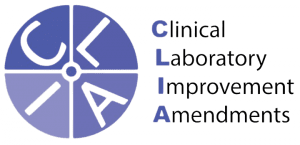
DNA, or deoxyribonucleic acid, is the genetic makeup of every living organic thing and carries the instructions for growth, functioning, development, and even reproduction. Being in a double helix form that allows it to carry such information, DNA testing can tell the recipient a wealth of knowledge that can be both personal or public depending on what they are looking for. Whether it is covering the person’s personal health, their ancestry, how they will develop, and more, DNA contains every bit of information that culminates into the person being researched. Not only for broad reasons, but DNA testing can also help with the discovery of a person to discover their blood relatives and specific diets that will activate positive or negative reactions to their personal health. [nw_data field=company] can help with all of these DNA services and more with a call to (800) 219-4362, you too can learn about yourself through your own DNA.
Is DNA testing 100% accurate?
While it may seem that DNA testing examines only one thing, the process by nature actually must look over multiple factors that make the genetic make up of what is given for study. For that reason, modern DNA testing cannot promise 100% accuracy in every subject, but can give a great amount of detail in each subject with the accuracy of each being over 90%. That is just if the person or situation only runs on the DNA given for DNA testing, going through a rigorous process of reading the genetic code and matching it to what is already known by using what DNA has already been explored.
Being that two people cannot have the same DNA, each person has their own unique genetic code that makes up their person. Those that study DNA and carry out DNA testing can recognize certain qualities that would make up a person based on what they find in their genetic material, helping to paint a picture of that person’s appearance. This can also lead the person studying the material to be led towards direct family members such as siblings and parents, who share 50% of the genetic material with the person they are related to.
This hopefully assists in explaining how DNA testing helps solve crimes. Law enforcement, when finding genetic material, better know the likelihood that a specific person that had committed a crime if not directly leading law enforcement to the perpetrator of a crime. If an adult is convicted of a crime, law enforcement can retain that DNA upon conviction. This includes genetic material recovered by them during an investigation and fingerprints taken during the process after the conviction. All the data from the process is put into a CODIS (Combined DNA Codex System), which is maintained by the Federal Bureau of investigation or the FBI.
What can DNA testing tell you?
As mentioned, DNA can tell you a wealth of things that can describe your ancestry and personal health. Doctors often use genetic testing to help patients with diagnosing chronic or developing diseases in the person and assist in helping determine an appropriate path of treatment. Being the genetic code that directs a living thing to develop, DNA testing can inform a child’s parents how roughly they will develop into an adult. It will also indicate what to be prepared for if a disease maternally or paternally is passed on by the parent.
A DNA test can also help determine a person’s personal qualities such as race and nationality through snippets of what can be found through their genetic heritage. There is an assumption that the test will tell you exactly what group your makeup belongs to, but that is not necessarily true. DNA testing pinpoints what makes up a person and helps them determine their ancestry by way of showing the factors that can be shared with the relevant data used as references. While it may not paint an exact picture of a person’s race or place of origin, it is huge in helping figure it out if not solving it with correlating information.
Can DNA tests be done with just the father and child?
When it comes to blood relatives, DNA testing can help deduce who a child’s parents are. Both parents do not have to be present in order to test their child’s DNA and neither do both have to be tested in order for it to be conducted, but testing both parents does paint the best picture in terms of DNA testing a child. Furthermore, a child receives half their genetic code from one parent and half from the other. That means that while the chances are high when only one parent commits to a DNA test with their child, it is possible for the test to not be capable of showing a conclusive result for a direct paternal or maternal link.
Siblings on the other hand also share 50% of their genetic code. Even for fraternal twins, there is 50% in relating characteristics, but as mentioned before no two people have 100% the same DNA. While it may seem like that makes the results inconclusive, it still has above a 90% accurate result and often helps families in a multitude of successful cases.
When it comes to family or loved ones however, [nw_data field=company] has Project Reconnect to help with connecting to family members that are veterans or are caught up in natural disasters. We understand the interest in finding those that were lost or may need help, that is why we have set up our DNA testing system especially for those in need.

What are DNA testing kits?
A DNA testing kit is generally a package that comes with a swab and a test tube that can be sealed. The intention upon receiving such a package is to swab the inside of your cheek, fill the tube with enough saliva, and send it to the indicated lab for testing. While a doctor’s office will use your genetic data for your personal health, these kits are more popularly designed to determine your ancestry, matching your genetic makeup with both those that are already cataloged as well as finding pertinent information about what makes up a person’s design. These tests can point to a person’s heritage stemming back generations and as time goes on, the tests will be able to go further back to determine a person’s ancestors.


















